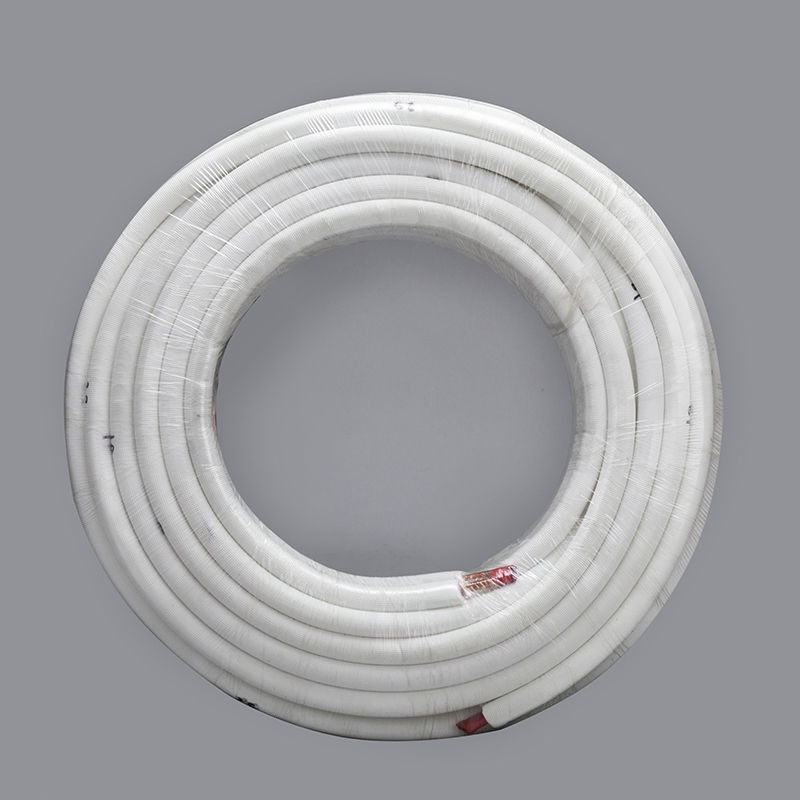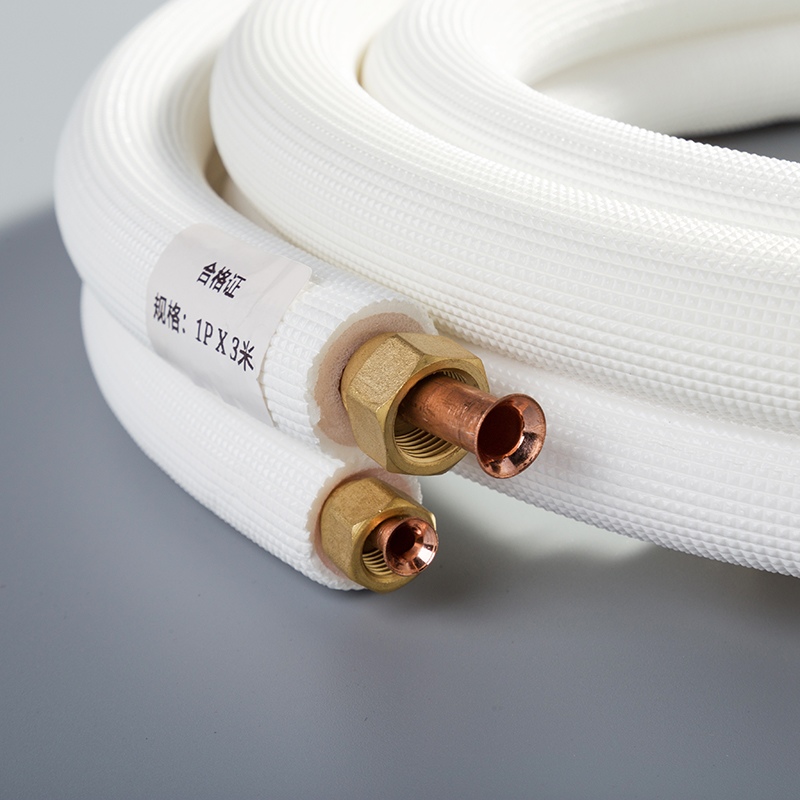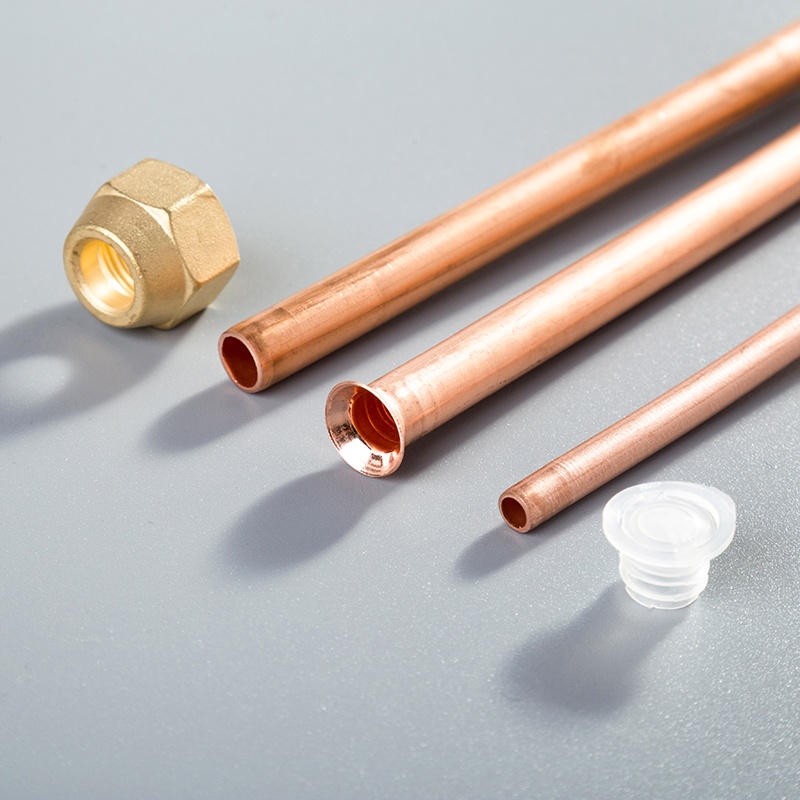Economic Impact of Rising Copper Pipe Prices in Air Conditioning

In the realm of air conditioning systems, copper pipes stand as indispensable components, facilitating efficient heat transfer and ensuring optimal performance. The current market scenario reflects a surge in copper prices, surpassing $10,000 per metric ton—a substantial escalation impacting various industries. As the world transitions towards renewable energy sources, the demand for copper intensifies, influencing its availability and pricing dynamics. This upsurge in metal prices poses challenges to sectors reliant on copper, such as HVAC systems, prompting strategic adaptations to navigate the evolving landscape. In this Trends blog post, we will delve into the Economic Impact of Copper Pipe Price Trends in Air Conditioning, exploring how these price fluctuations affect the industry and what measures are being taken to mitigate these challenges.
Market Trends and Forecasts

Current Market Trends
Global Copper Prices
Copper prices have been on the rise, impacting various industries globally.
The surge in copper prices has significant implications for manufacturing sectors.
This increase in metal prices affects production costs and market dynamics.
Demand and Supply Dynamics
The demand for copper pipes is influenced by economic stability and industrial growth.
Fluctuations in supply and demand dynamics directly impact the availability of copper.
Industrial growth plays a crucial role in determining the demand for copper in various sectors.
Future Market Forecasts
Predicted Price Trends
Analysts predict continued fluctuations in copper prices due to market uncertainties.
The future price trends of copper are subject to global economic conditions.
Forecasting copper prices involves analyzing market trends and geopolitical factors.
Impact on Air Conditioning Market Growth
Rising copper prices pose challenges for the air conditioning industry.
Manufacturers are strategizing to mitigate the impact of increased raw material costs.
The growth of the air conditioning market is closely tied to copper price trends.
Specific Segments Analysis
Product Types
Types of Copper Pipes Used in Air Conditioning
Type L Copper Pipe:
Description: Type L copper pipe is utilized for interior plumbing, fire protection, and certain HVAC applications. It is available in rigid and flexible forms and can be used with sweat, compression, and flare fittings. Considered the most common type of copper piping due to its versatility across various applications.
Applications: Suitable for carrying refrigerant in air conditioning systems due to its excellent thermal conductivity, durability, and corrosion resistance.
Characteristics: Thinner than Type K but thicker than Type M, making it a durable choice for both indoor and outdoor applications.
Alternatives to Copper Pipes:
While copper pipes are widely used in air conditioning systems for their superior properties, alternative materials like aluminum have gained popularity due to their lightweight nature and cost-effectiveness.
Aluminum pipes offer comparable thermal conductivity to copper while being more resistant to corrosion, providing a viable alternative in certain HVAC applications.
End Uses
Residential Air Conditioning
In residential settings, copper pipes play a crucial role in ensuring efficient cooling systems. The use of Type L copper pipes is prevalent due to their reliability and durability.
Homeowners benefit from the longevity of copper pipes in air conditioning units, reducing maintenance costs over time.
The adoption of sustainable practices in residential air conditioning systems involves the use of energy-efficient components like copper tubes.
Commercial and Industrial Air Conditioning
Commercial and industrial sectors rely heavily on robust air conditioning systems equipped with high-quality components such as copper pipes.
Type L copper pipes are preferred for their ability to withstand varying temperatures and pressures in large-scale HVAC installations.
The durability of copper pipes ensures long-term performance in industrial air conditioning units operating under demanding conditions.
Regional Markets
North America
North America represents a significant market for copper pipes in air conditioning applications. The region's focus on energy efficiency drives the demand for high-performance HVAC systems equipped with quality components like Type L copper pipes.
Regulations promoting sustainable construction practices further boost the adoption of environmentally friendly materials such as copper tubes in North American markets.
Europe
Europe showcases a growing trend towards eco-friendly solutions in air conditioning systems, leading to an increased preference for copper tubes known for their recyclability and energy efficiency.
The stringent quality standards set by European regulatory bodies ensure that only top-grade materials like Type L copper pipes are used in commercial and residential HVAC projects across the continent.
Asia-Pacific
The Asia-Pacific region witnesses rapid urbanization and infrastructure development, creating a surge in demand for advanced air conditioning technologies incorporating high-quality components like Type L copper pipes.
Manufacturers catering to the Asia-Pacific market focus on innovation to enhance the performance of HVAC systems while maintaining cost-effectiveness through efficient material choices.
Key Players and Strategic Analysis

Major Manufacturers of Copper Pipes
Industrial Specialties Mfg., Inc. stands out as a prominent player in the copper pipe fitting industry, offering top-quality products to meet diverse market demands. With a focus on innovation and reliability, Industrial Specialties Mfg., Inc. has solidified its position as a leading provider in the sector.
Ohio Pipe, Valves, & Fittings, Inc., known for its specialization in fully welded, seamless stainless steel, and PVC pipes, caters to a wide range of industries with precision-engineered solutions. The company's extensive product portfolio and commitment to customer satisfaction have earned it a reputable status in the market.
PipeMan Products, Inc. distinguishes itself through its innovative plumbing solutions tailored for the PHCC and waterworks industries. By addressing specific needs in pipe repair markets, PipeMan Products, Inc. continues to drive advancements in the industry with its cutting-edge offerings.
KME Copper Pipe Manufacturers and Aurubis Copper Pipe Manufacturers are recognized as top players in Germany's copper pipe manufacturing sector. Their commitment to quality and efficiency has established them among the top 10 manufacturers in the country.
Strategic Responses to Rising Prices
Cost Management Strategies play a pivotal role for companies navigating the challenges posed by escalating copper prices. Implementing efficient cost management practices allows organizations to optimize their operational expenses while maintaining product quality and competitiveness in the market.
Innovation and Alternatives serve as key drivers for strategic responses to rising copper prices. Companies explore alternative materials and production methods to mitigate the impact of price fluctuations on their bottom line. By fostering a culture of innovation, businesses can adapt proactively to changing market conditions while ensuring sustainable growth.
Reflecting on the key findings, the escalating copper prices present a significant challenge for the air conditioning industry, impacting manufacturing costs and market dynamics. The long-term implications suggest a forecasted increase in the cost of copper tubes used in refrigeration circuits, influencing product affordability and industry competitiveness.
Looking ahead, the industry is poised for anticipated growth, driven by the demand for cost-effective copper pipes and tubes. As manufacturers navigate rising metal prices through strategic adaptations, the future outlook remains optimistic, emphasizing innovation and efficiency to sustain market relevance and meet consumer needs effectively.
See Also
The Advantages of Copper Piping for Air Conditioning Systems
Revealing the Influence: Copper Tubes in Air Conditioning
The Transformation: Pure Copper Piping in Air Conditioning
The Benefits of Selecting Copper Piping for Air Conditioning
The Importance of Pure Copper Piping for Effective Air Conditioning


